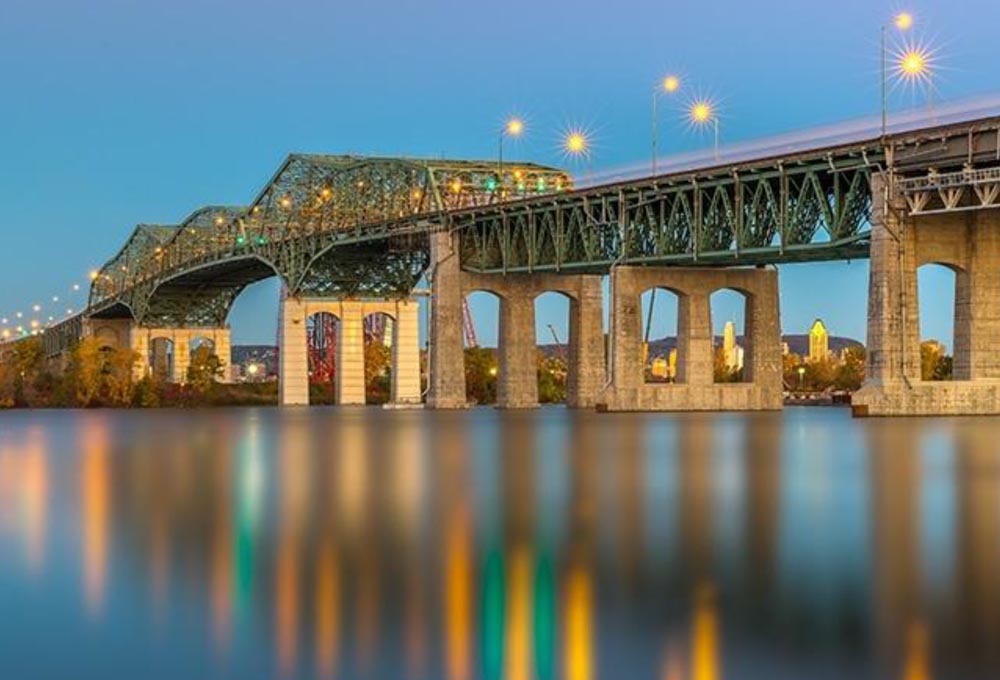Summary
Inaugurated in 1962, the Champlain Bridge in Montreal, Canada, suffered premature degradation caused by corrosion due to de-icing salts and the lack of an adequate drainage system in the bridge’s original design. Despite repeated reinforcements and repairs, the deterioration only increased over the years, causing safety concerns. In 2011, it was decided to replace the bridge and then deconstruct the old structure. The bridge operator, The Jacques Cartier and Champlain Bridges Incorporated (JCCBI) is responsible for the deconstruction process, following a sustainable approach. Design-build was chosen as the project delivery method, and work on-site is scheduled to begin in the summer of 2020 when the bidding process will be complete. Favored by Canada’s strict climate change policy and an integrated sustainability culture built within JCCBI, the deconstruction of the old Champlain Bridge aims to improve environmental performance for similar projects in terms of sustainability. The question is not whether the project will be sustainable but how sustainability innovation can be pursued and implemented most cost-effectively and efficiently. In countries and organizations where sustainability has been well-established and embedded in the culture, there is a need for strategic sustainability tools – besides the established sustainability rating tools – to shape the project and assist decision-making toward sustainability from a very early stage.
Research director
Prof. Spiro Pollalis
Research core team
Dimosthenis Lappas, Research Associate
Case study written by
Dimosthenis Lappas, Research Associate



